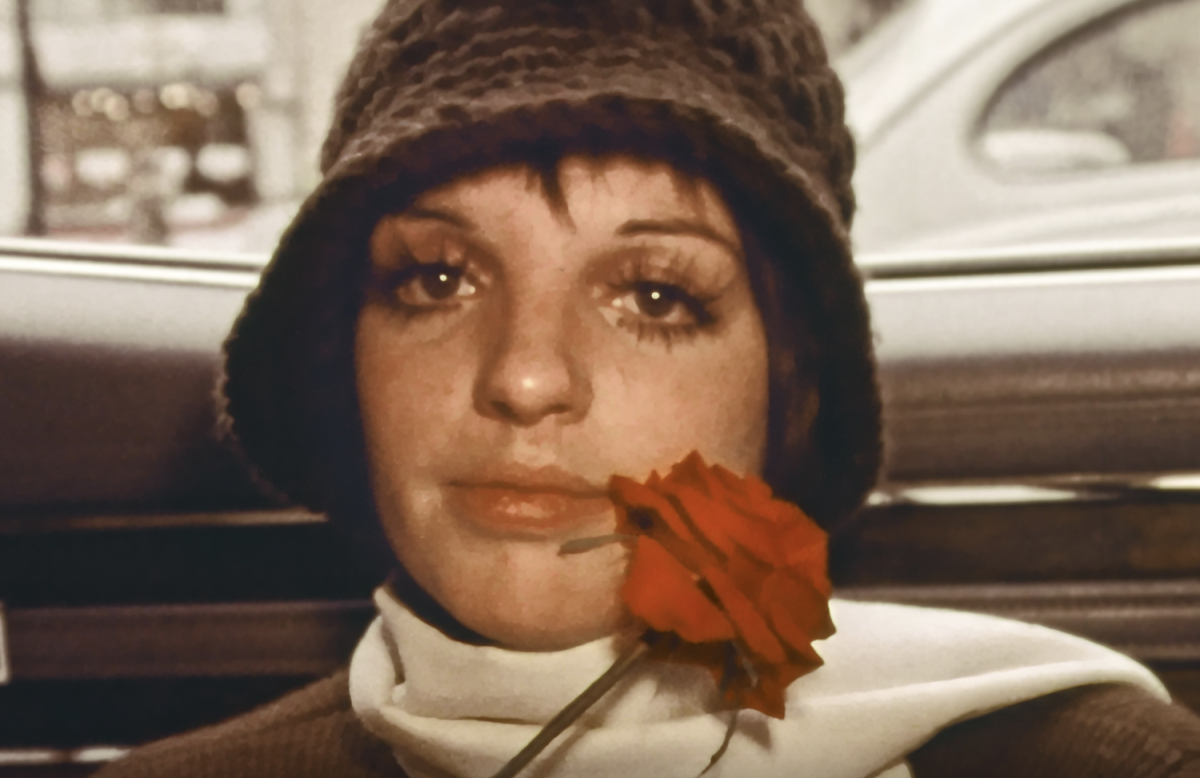Liza Minnelli. The iconic triple threat. EGOT winner. Daughter of the legendary Judy Garland and director Vincente Minnelli, icons that paved their daughter’s own way to superstardom. Last of her kind.
This sounds glamorous, yes. But a lifetime in the spotlight is not all glitz and glamor. In spite of relationship turmoil, family heartache and loss, Minnelli made it. After all, what good is sitting alone in your room? “Liza: A Truly Terrific Absolutely True Story” gives the world her story, often in her own words.
Some may say that Minnelli is the original nepo baby, and this is true in some ways. Her talents are gifts that were certainly passed down by her mother. They were performing together on the stage of the London Palladium by the time she was 18. Garland’s great gift to her daughter, though, is not what we now call nepo baby connections, but an unassailable fighting spirit. Garland was kept on a strict diet along with methamphetamines prescribed by MGM to keep her energy up, leading to a nervous breakdown.
Director Bruce David Klein composed “Liza: A Truly Terrific Absolutely True Story” out of treasure troves of archival materials and interviews with the legend, covering everything from her mother’s early death to her major public relationships and everything in between. These interviews with Minnelli and her dear friend Michael Feinstein anchor the tribute documentary as it chronicles the major events and people that paved her way to stardom. In some ways, the film is as much a love letter to Minnelli as it is to the support network that made her the sensation she is. From superstars Bob Fosse to Fred Ebb and Halston, her mentors took her under their wings so that she could spread her own, and boy did she fly. What makes the picture abundantly clear is not these interviews but previously unseen clips of Minnelli performing. It is there that we see Halston’s uniquely functional fashion propelling her image, flawless execution of Fosse’s training and choreography and John Kander and Fred Ebb’s songs that were literally written for her soaring on her one-of-a-kind voice. In Minnelli, we see them. Their legacy. Her gratitude.
Of course, anyone could listen to Minnelli talk about absolutely anything all day long, but hearing other legends in their own right talk about her — Feinstein, Mia Farrow, John Kander — truly makes us appreciate Minnelli as an icon above icons. Through them, “Liza: A Truly Terrific Absolutely True Story” brings us closer to Minnelli than ever before. As her friends provide much-needed context and substance that the star is seemingly unwilling to dive into, we get a picture of those that helped her along the way, the friends that kept her going.
Through the lens of the documentary, Minnelli’s life is presented as gilded as can be — though like “Cabaret,” the star turn that won her an Oscar — the undercurrents of darkness remain. Unlike the Kander and Ebb classic, however, that is not the point. The darkness — grief and struggles with scoliosis — is largely untouched by the documentary’s content, and understandably so. In pure showbiz fashion, Minnelli pulls back the curtain without revealing too much. This is particularly noticeable as they cover her tumultuous childhood and supersonic rise to the spotlight, battles with addiction and four marriages. What is clear, however, is that burrowing into the deepest darkest reaches of her past is not the point here. The film avoids dwelling on the tragedy of Minnelli’s life without ignoring it entirely. Details remain shrouded, and the focus remains on her positive impact on the entertainment of the industry rather than her own life.
The film opens darkly enough, reaching back to the death of Judy Garland. It makes the conscious choice of presenting Minnelli’s hope, courage and enthusiasm for her work. Klein guides the audience through the development of her unique style and revisits her greatest hits.
Contact Joe Paladino at [email protected].






















































































































































